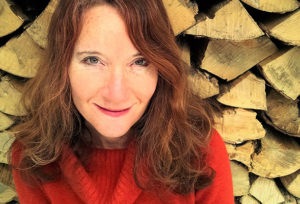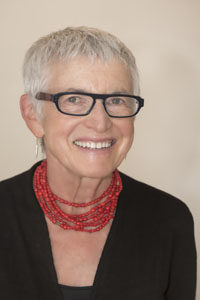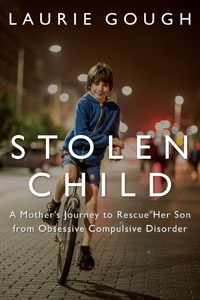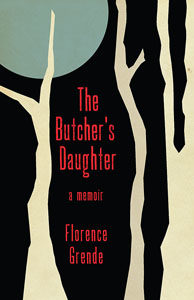Date: Thursday, January 12, 2017
Time: 5:00 p.m.–7:00 p.m.
Location: Aldea Hotel
San Miguel de Allende
Book Launch Event! Two Authors Introduce New Books
Laurie Gough’s Stolen Child
We are very pleased to invite you to the Mexican book launch of Stolen Child: A Mother’s Journey to rescue Her Son from Obsessive Copulsive Disorder, by former San Miguel resident, author Laurie Gough.
Although Laurie Gough was an intrepid traveler and travel writer who’d explored wild, far-off reaches of the globe, the journey she and her family took in their own home in their small Quebec village proved to be far more frightening, strange and foreign than any land she had ever visited…
Come away, O human child!
To the waters and the wild
With a faery, hand in hand.
For the world’s more full of weeping than you can understand.—William Butler Yeats, “The Stolen Child”
Early Reviews of Stolen Child:
“This moving story is highly recommended as a beacon of hope.”
— Publishers Weekly
“A gripping, shocking story…. will move you to tears…impossible to put down.”— Ottawa Citizen/Montreal Gazette
“Stolen Child is beautifully written and emotionally evocative, but it is not just about OCD. It is about the power of reason…and love…to overcome adversity, a book that belongs among the classics of parenting.”
— Michael Shermer, author of Why People Believe Weird Things, The Believing Brain, The Moral Arc, Publisher of Skeptic Magazine
“This book is an outstretched hand. A gift to anyone who has sought to understand the mysterious nature of OCD and its isolating, bewildering consequences. This is a tale of tenderness and devotion, a portrait of the importance of community, and a story of surprising, unexpected, light.”
— Alison Wearing, author of Confessions of a Fairy’s Daughter and Honeymoon in Purdah
It’s a heartfelt story of a family transformed by OCD, told with compassion and honesty.”
— Jim Davies, cognitive scientist and author of Riveted: The Science of Why Jokes Make Us Laugh, Movies Make Us Cry, and Religion Makes Us Feel One With the Universe
Praise for Laurie Gough’s Travel Memoirs:
“An enchanting guide, Gough is present, vulnerable, and delightful.”
— San Francisco Examiner
“Gough brings a boundless enthusiasm, openness and fundamentally romantic optimism to the world.”
— salon.com
“Gough records everything she sees with a subtle wit, a lyrical turn of phrase, and a remarkably open mind. Her writing is vigorous, sensual and visual. She sweeps the reader into her world.”
— The Globe and Mail
“A gifted storyteller, she writes a book very difficult to put down.”
— The National Post
“A curious traveller with a good ear for dialogue and a wild way with words, wrapping her account of travels in a vibrant poetry.”
— Anthony Sattin, The Sunday Times (UK)
About Laurie Gough
 Laurie Gough is the author of the newly-released memoir, Stolen Child: A Mother’s Journey to Rescue Her Son from Obsessive Compulsive Disorder (Dundurn); Kiss the Sunset Pig: An American Road Trip with Exotic Detours (Penguin); and Kite Strings of the Southern Cross: A Woman’s Travel Odyssey (Random House, Travelers’ Tales), shortlisted for the Thomas Cook Travel Book Award in the U.K., and silver medal winner of ForeWord Magazine’s Travel Book of the Year in the U.S. Over twenty of her stories have been anthologized in literary travel books. She has been a regular contributor to The Globe and Mail, and has written for The Guardian, The L.A. Times, Maclean’s, The Walrus, USA Today, salon.com, Huffington Post, The National Post, Canadian Geographic, among others. See: www.lauriegough.com
Laurie Gough is the author of the newly-released memoir, Stolen Child: A Mother’s Journey to Rescue Her Son from Obsessive Compulsive Disorder (Dundurn); Kiss the Sunset Pig: An American Road Trip with Exotic Detours (Penguin); and Kite Strings of the Southern Cross: A Woman’s Travel Odyssey (Random House, Travelers’ Tales), shortlisted for the Thomas Cook Travel Book Award in the U.K., and silver medal winner of ForeWord Magazine’s Travel Book of the Year in the U.S. Over twenty of her stories have been anthologized in literary travel books. She has been a regular contributor to The Globe and Mail, and has written for The Guardian, The L.A. Times, Maclean’s, The Walrus, USA Today, salon.com, Huffington Post, The National Post, Canadian Geographic, among others. See: www.lauriegough.com
Florence Grende’s The Butcher’s Daughter
Description
What was it like to hide with your family in the dense forests of Poland for two long years, as my mother did, living in a hole in the ground, while alert, always alert, to the sounds of Nazis and their dogs?
How was it to be both hunter and hunted, as my father was, taking up arms, bartering for and stealing food, fighting for another day of life, wounded and recovering, while protecting others living in the forest — the old, the infirm, the children?
And what was it like for me after the war, growing up with these two people, Mameh and Tateh, my parents, who held their stories close. And each of us haunted by the dead? The Butcher’s Daughter, lays flesh on the bones of their stories, and on mine.
Praise for The Butcher’s Daughter
Many family memoirs and memoirs of survival and struggle fall short of depicting the very nuances they seek to bring to life; but this isn’t so in The Butcher’s Daughter. Florence Grende’s ability to lift the moments, impressions, thoughts, and passions from experience and capture them in their crystalline seconds of agony and ecstasy elevates her story above and beyond similar-sounding accounts, creating an singularly striking piece that doesn’t have to hammer home its message, because every whisper is a powerhouse of passion.
— Diane Donovan, Senior Editor, The Midwest Review
The Butcher’s Daughter is a deeply personal account of growing up in the aftermath of atrocity. It is not only the clearest view we are ever likely to get of the myriad and intimate ways that trauma is inherited and suffering passed on, it is also witness to the fact that the strength it takes to prevail is also part of that inheritance. Luminous and profound, ferocious and sublime, The Butcher’s Daughter will move you beyond measure.
— Richard Hoffman, author of Half the House and Love & Fury.
Florence Grende’s heartrending account of her Jewish upbringing, a child of Holocaust survivors, weaves a story of pain and sorrow, fear and anger, and the hidden melancholy, the depression that makes monsters out of otherwise ordinary people. The Butcher’s Daughter is a memoir that speaks for those too traumatized to voice their stories: the survivors and their children…This is more than just a memoir. It’s a testament: a statement of a life shattered because of a brutal war. Hitler’s evil affected more than just those who lived through it. His evil stretched into the next generation, not just amongst the Jews, but also amongst the children and the grandchildren of high ranking Nazis. A powerful story told with compassion. A must-read.
— Emily-Jane Hills Orford, Readers’ Favorite
Florence Grende’s memoir wields the keen, bracing edge of utter honesty. Faced with the unfathomable suffering of the Shoah, as represented by the lives of her survivor parents, she writes of the bits and pieces of rage, endurance, bafflement, grief and the will to live. Here is a story of a woman trying to move forward in the new land of America but who has been raised with the shades of the European dead for company. The terse, poetic prose makes the reader feel what it was like to grow up and live with silences that truly were unspeakable.
— Baron Wormser, Poet Laureate of Maine, 2000-2006, author of The Road Washes Out in Spring : A Poet’s Memoir of Living off the Grid, Impenitent Notes.
In a clear voice that manages to be both haunted and compassionate, Grende reminds us that “Monster and victim can be one and the same.” Tackling subjects as harsh as war and family dysfunction, she writes with exquisite attention to sound and prose rhythms, reminding us, as all masterful writers do, that what you say matters because of how you say it. What a stunning debut.
— Barbara Hurd , author of Listening to the Savage: On River Notes and Half-heard Melodies.
The Butcher’s Daughter is one of the most compelling memoirs I have read and one that I highly recommend.
— Doug Erlandson, Top 50 Amazon Reviewer
About Florence Grende
 Florence Grende was born in American Occupied Germany to Holocaust survivor parents and grew up in the Bronx. As a young woman, she earned a Master of Social Work degree, and later, at age sixty, a Master of Fine Arts in creative writing. The Butcher’s Daughter is her debut book. She hardly considers herself a late bloomer having pursued careers first as a therapist, then an AT&T union worker, a mixed-media artist, and Jewish Film Festival creator/organizer.
Florence Grende was born in American Occupied Germany to Holocaust survivor parents and grew up in the Bronx. As a young woman, she earned a Master of Social Work degree, and later, at age sixty, a Master of Fine Arts in creative writing. The Butcher’s Daughter is her debut book. She hardly considers herself a late bloomer having pursued careers first as a therapist, then an AT&T union worker, a mixed-media artist, and Jewish Film Festival creator/organizer.
She holds an MFA from the Stonecoast writing program at the University of Southern Maine. Her stories and poems have appeared in “Litro Magazine, Babel Fruit, Poetica, The Sun, The Berkshire Review, The Women’s Times, and in the anthologies Robot Hearts: True and Twisted Tales of Seeking Love in the Digital Age, and The Widow’s Handbook: Poetic Reflections on Grief and Survival.



Comments are closed, but trackbacks and pingbacks are open.